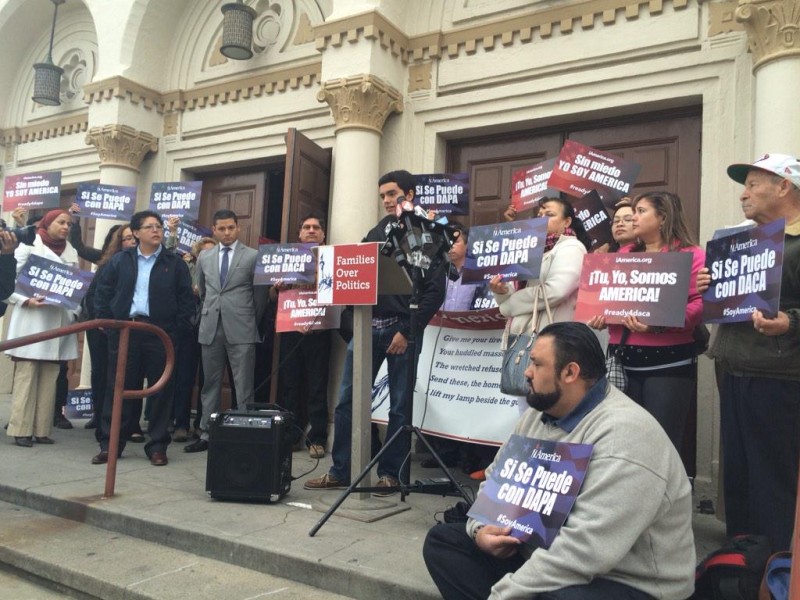A federal judge's order Monday delaying, and possibly halting, the Obama administration's plan to expand deportation protections for some 4 to 5 million people illegally in the U.S. received condemnation from Bay Area immigrant advocacy groups and many California leaders.
U.S. District Judge Andrew S. Hanen, of Federal District Court for the Southern District of Texas in Brownsville, granted a preliminary injunction to 22 plaintiff states (and leaders of others) suing the U.S. government to stop the expansion of the 2012 Deferred Action for Childhood Arrivals program. DACA allows some children brought to the country illegally to apply for a temporary quasi-legal status. They can legally work and live in the U.S. for two years, any deportation actions against them "deferred" -- not as a change to the law, the Department of Justice argues, but as an exercise of law enforcement discretion.
The DACA program in its original form isn't subject to yesterday's order, and so it will continue. Nearly 700,000 people have formalized their status through the program to date, according to Hanen's order.
The judge blocked an expansion to DACA that would extend the deferred period from two to three years and remove an age cap requiring the applicant to be born after 1981. It was scheduled to roll out Wednesday. Hanen's order also stopped a similar program that would allow the parents of U.S. citizens or lawful permanent residents to apply for three years of deferred action slated to start in mid-May. For "Dreamers," young people able to take advantage of DACA and work legally after college graduation, a way to formalize the immigration status of their parents was the logical next step.
Depending on who's talking, yesterday's preliminary injunction is either just a temporary legal hurdle that will be overturned or a solid prediction of how courts will rule on Obama's attempt to use executive authority to allow some undocumented immigrants relief from fear of deportation.
